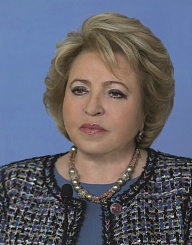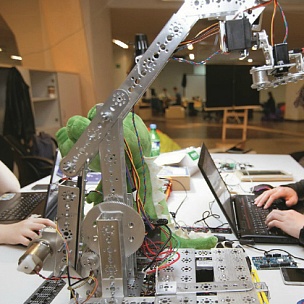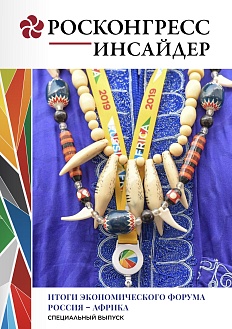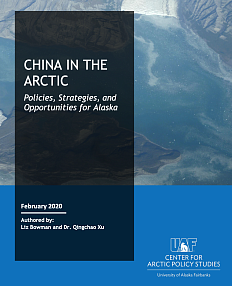Ms. Matviyenko, three years ago the Eurasian Women’s Forum was held for the first time right here in St. Petersburg. What are your expectations for the second Forum?
The First Eurasian Women’s Forum demonstrated that we women are a vital component of global development. Our role is only going to grow — in all spheres of life. In 2015, women came to St. Petersburg from 80 countries, and in 2018 we expect a great many more nations to be represented. No longer a one-time event, the Eurasian Women’s Forum has become a systemic, active institution, bringing together programmes and initiatives from very different countries.
This is reflected in the way we are organizing our work and in the agenda for the upcoming second Forum. The search will continue for new solutions that will expand women’s empowerment, with a focus on new technological, economic, and social realities, along with both the positive opportunities and the challenges and dangers associated with them.
Of course, in the current tense international circumstances, we also must keep in mind the events and processes arising from global politics. We count on directing the discussion of those issues towards the development of concrete proposals aimed at achieving more active and effective participation by female politicians and by women’s movements and organizations in all areas. This will help establish equal rights and mutually beneficial cooperation between states.
The Forum’s central themes will be the role and capabilities of women in global security, sustainable development, politics, economics, business, and science. The world’s female elite — government officials, politicians, academics, entrepreneurs, and figures from the arts and culture — will take part in 35 discussion platforms. There will be a Women 20 (W20) session, a meeting of the BRICS Women’s Business Club, an APEC seminar on ‘Women and the Technology of the Fourth Industrial Revolution’, BRICS public—private and business dialogues, and talks between Russia and France and Russia and Kazakhstan. There will be UNIDO and UNESCO panel discussions, and reports by the World Health Organization (WHO), the International Labour Organization (ILO), and the World Bank.
We still have proposals for new formats and new discussion topics coming in. We are trying to consider all of these ideas and include them in the Forum’s format and agenda.
What is women’s place in business and the economy today? How is Russia doing in this regard?
In the global economy, women hold almost half the jobs and create 37 % of total GDP. The ILO says that a third of the world’s entrepreneurs are women. If all women suddenly left the economy, it would grind to a halt.
For Russian women, the road to any sphere of life in the country is wide open, and they have access to any profession and any type of activity. That includes entrepreneurship. Twenty-five years ago women accounted for 15 % of this sector, but today that figure has risen to one third. We are now seeing successful examples of women’s entrepreneurship not just in retail and the service sector, the areas most traditionally associated with women, but also in the agricultural industry, construction, high-tech sectors, and banking.
The state, including the Federation Council, is working to develop female-owned businesses. The topic was discussed at the First Eurasian Women’s Forum, and that was when the permanent discussion platform, Developing Women’s Entrepreneurship in Russia, was created and many other practical measures adopted. I am confident that thanks to those initiatives, and thanks to the realization of the ideas put forth in the Address from the President of Russia, women’s entrepreneurship will become a chief factor in economic growth in the very near future.Russia is number one in share of women at top business positions (47%) according to Grand Thornton’s
Is it useful, in principle, to talk about gender differences, for example to pinpoint concepts of ‘female’ and ‘male’ management? Doesn’t this just help to reinforce gender inequality?
When you consider the problem, as you said, ‘in principle’, then of course there is no basis for talking about ‘male’ versus ‘female’ management. Efficiency and success are not connected with the entrepreneur’s sex, but rather with his or her intellect, professionalism, and experience.
At the same time, naturally, it would be a mistake not to take note of the actual differences between men and women in what we usually call management style. It would be foolish to deny or ignore those. But they are not the deciding factor in terms of management effectiveness.
I believe that the world, as a whole, has come to a point when an ever-growing number of countries are working to uphold equality between men and women. But they are doing that work at different tempos in different spheres. I believe, and I have said this more than once, that Russia, which achieved full legal equality between women and men earlier than other countries, is now lagging behind several other nations in terms of female representation in leadership positions in politics, government, and certain other areas. And this is not a flaw in our policies. It is more an aspect of the Russian mentality, not yet fully expunged, a type of cultural atavism. The state and society are aware of this problem and are working to solve it. We can see progress. It won’t be long before we stand as equals alongside the countries who are leading the way in this regard.
Source: SPIEF-2018 Official Magazine






